
SCARS Institute’s Encyclopedia of Scams™ Published Continuously for 25 Years

Personal Opinion vs. Professional Fact
WARNING: This will often you – if you think you know something that you don’t!
Opinions are like relatives, everyone has them! Just think about your crazy uncle and his opinions!
This article is intended to help victims understand their own misguided opinions and how other amateurs can steer them in the wrong direction.
Every Scam Victim Has Opinions
But opinions are just that. They are based upon biased views of their own experience. They are mostly assumptions, half-truth, and urban legend – all lined up to confirm existing biases!
Something that is profoundly sad, is that most victims have already demonstrated that their ignorance is the basis of their bad decision making. Yet after the scam, victims frequently continue to rely on their opinions (that arise from confirmation bias or other cognitive biases) to guide their decisions.
Meaning: scam victims still make bad decisions, just in a different direction.
What is the difference Between Opinion & Professional Knowledge?
Opinions
We are constantly in contact with scam victims. Our leadership has been supporting scam victims for 30 years! SCARS itself – since being founded in February 2015 has actually had contact with over 5,850,000 victims in the last 6 years. It has certainly allowed us to research victims’ behaviors and beliefs in vast detail.
In addition, SCARS is a real registered crime victims’ assistance organization, whose team members are trained, and in some cases certified in what we do. We are also a crime prevention organization working to directly impact cyber-enabled criminals around the world in partnership with such entities as the United States Department of Homeland Security and others. These are some of our qualifications.
Unfortunately, many victims believe that their opinions give them greater insight into cybercriminality regardless of the extraordinarily limited amount of experience they have. They have a right to their opinion and they know better. (you should look up “Savior Syndrom or Complex“)
It is these who do so much damage to other victims and really accomplish almost nothing in combatting the reality of cybercrime.
Much of the “knowledge” these victims have only come to them through the eyes of their own bias – the same bias that led them into the scam in the first place. But because they are a victim of a scam and they know a little about one topic, it gives them the privilege to talk about it and share with others what they should do rather than explain it is only their opinion and they have little or no real-world experience. Unfortunately, this can serious affect other victims – it is one of the reasons why so few victims effectively recover from their experiences.
There are MANY amateur anti-scam commandos who feel they are legends in their own right! And sadly, large numbers of victims gravitate towards them,
The fact is that opinion based upon limited experience and personal bias are dangerous because they can sound like fact – but they are not.
The difference between personal opinion and professional fact is great, and many get them confused.
Personal opinion (and everyone has one) is just that. Their opinion. Personal opinions are not supported by professional fact, they are what you THINK, your suggestive idea, you’re “Hey, if I was in your situation I would try or do this” – but should end by saying that it is only their opinion! More importantly, these opinions are based mostly on personal biases, and it is these biases that have to change – but by feeding them by expressing your opinions, they are reinforced.
This would be like someone giving advice to a person on how to fish, change the oil in their car, or give my opinion to martial artists on their forms or martial art weapons techniques. These are areas with which there’s no personal experience, but yet everyone eats fish (a lot of it), owns a car (you drive one), and may have MANY friends who do martial arts and compete in martial art tournaments. Yet when it comes to fishing, working on a car, or competing and doing traditional martial arts – anything an amateur shares with them or others is not supported by personal or professional fact, it is what they THINK. It is a suggestive idea, a “Hey, if I was in your situation I would try or do this” – but I end it with this is only my opinion!
However, some opinions are wrong regardless of stating it is an opinion. These involve someone’s health or safety.
Opinion vs. Professional
Professional fact is very simple – professionals have been trained and personally experienced these situations firsthand. The information may partially be gleaned through the experiences of others, and they will also have read about it from proper research and academic studies, but they also learned it through their own eyes and contact on a large enough scale to understand the impact on a scale that no amateur can.
By doing, and learning along the way, professionals gain first-hand knowledge about something and can share what they have learned because they have that knowledge, as opposed to just an opinion. And when it comes to giving advice about protecting yourself and staying safe, you want to learn from people who KNOW what they are talking about because your very life (emotional and physical) could depend upon that information being correct.
The next time you get advice on something, make sure you know that the person speaking has the training and first-hand experience necessary to give out professional facts, not just their opinion.
At SCARS we take great effort to help our team and volunteers learn the subject matter and what (based upon our leadership’s 30 years of experience) works and what does not work. We then monitor all of our organizational actions for consistency with this.
Assumptions
Another word for an Opinion is an Assumption! Do you know what they say about when you Assume?
Scam victims should fastidiously avoid making assumptions like the plague:
- They’re an easy out. The path of least resistance is also the path of least growth and least understanding. Instead of learning reality, you jump to a conclusion!
- They stop you from taking responsibility for your life. Assumptions allow you to hide behind your version of the story. This means you don’t own your part in the true story. You can use assumptions to blame others for your misfortune, rather than understanding it and using it to alter your behavior to avoid risks in the future.
- They keep you stuck in the past. Assumptions rely on old information (confirmation bias, relationshipness bias, or other cognitive biases) to fill in blanks and connect dots. Instead of expanding your knowledge, you retreat into the past. Into your painful traumatized past.
- It’s lazy thinking. Instead of asking questions to get the information you need, you jump to conclusions. Most of the time they will be profoundly wrong.
- They foster a negative mindset. Most assumptions are derived from old, painful information. This reinforces your innate negativity bias that is the product of your trauma and keeps you thinking the world is a fundamentally hostile/fearful place.
- It’s toxic thinking. To protect yourself from more hurt, you use your assumptions to lash out at others instead of learning the truth. This is bad for them, and you. It is a fundamental reason why so few scam victims can recover.
- They become a bad habit. The more you make assumptions, the easier it is to continue making them (again they can form the basis of your cognitive biases). You find it easier to relive past hurts to get missing information than to ask questions. This helps doom you to making the same mistakes over and over.
- They deepen your pain and trauma. The more you pick at a wound, the more traumatized it gets. The same is true of emotional trauma, and it doesn’t get a chance to heal.
- Assumptions are ALWAYS wrong. Most victims have a perfect record with the assumptions they’ve made. 100% of them have been wrong.
What Is A Professional?
Defining Professionalism
The Merriam-Webster dictionary defines professionalism as “the conduct, aims, or qualities that characterize or mark a profession or a professional person;” and it defines a profession as “a calling requiring specialized knowledge and often long and intensive academic preparation.”
These definitions imply that professionalism encompasses a number of different attributes, and together, these attributes identify and define a professional.
But there is more than that. It also brings an ethical obligation to the professional person and those that they care for or interact with!
Specialized Knowledge
First and foremost, professionals are known for their specialized knowledge. They’ve made a deep personal commitment to develop and improve their skills, and, where appropriate, they have the degrees and certifications that serve as the foundation of this knowledge.
Not all business areas have a stable core of knowledge (and the academic qualifications that go with it); not all areas demand extensive knowledge to practice successfully; and not all professionals have top degrees in their field. However, for there to be a profession there have to be standards. In crime victims’ assistance – both professional and ethical standards are involved. SCARS publishes these on its website www.AgainstScams.org
What matters, though, is that any real professionals have worked in a serious, thoughtful, and sustained way to master the specialized knowledge that they need to succeed in their fields; and that they keep this knowledge up-to-date so that they can continue to deliver the best services and support possible.
For example: once upon a time – 120 years ago – anyone could be a doctor. There were no agreed-upon definitions. You could just say you were a doctor in most parts so the world, even in the United States. Once upon a time Barbers were surgeons. This amateur mentality gave way to professionalism.
Ironically, lawyers have had professional standards far sooner than the medical profession. That says something about our civilizations’ priorities.
Over time, in every area knowledge and standards were required to be called a professional – but the amateurs resisted.
Competency
Professionals provide competent services. They are reliable, and they keep their ethical commitments – based upon their training, knowledge, experience, and standards. If circumstances arise that prevent them from delivering on their promises, they manage expectations and do their best to resolve the issues.
For example, the NOVA standard (for crime victims’ assistance) requires professionals to always provide a path for crime victims’ assistance. A professional may not always be able to assist a victim but will provide recommendations or referrals to help the victim achieve or obtain the help they need. Amateurs believe they know all that is needed to help anyone.
Professionals focus on acquiring knowledge and finding viable best-practice solutions.
Honesty and Integrity
Professionals exhibit honesty and ethical integrity. They can be trusted implicitly because of this. They work to never compromise their ethics and will do the right thing, even when it means taking a harder road.
This means that at times admitting that you cannot help someone is required, but ethically referring them to someone that can.
Humility and truth go hand in hand. Truth is not the same as an opinion – the truth is based upon established fact reinforced with vast experience. If a need falls outside of the scope of expertise, a professional is not afraid to admit it. Professionals will seek additional knowledge when they need it and are willing to learn from the knowledge and experience of other allied professionals.
In other words, professionals know what they know and know when they don’t know. Amateurs think they know everything and what they don’t know is not important.
Accountability
Professionals hold themselves accountable for their professionalism. They will have clearly defined ethical standards and conduct their activities in alignment with those standards. Real victims’ assistance providers are registered with their government and are incorporated.
Self-Regulation
Genuine professionals show respect for the people around them, no matter what their role or situation, except in cases where others violate their ethical requirements or falsely claim to have capabilities that they do not. Professionals seek to expand on their knowledge, standards, and best practices through interaction, alignment, and affiliation with real organizations and bodies that will benefit them and the people or organizations they serve.
Why?
We are not saying all this to blame victims who have opinions, but rather to help every victim understand that the reason they were scammed is that personal biases (opinions) got in the way of recognizing the risk and danger upfront and that after a scam they are still there. Just becoming a victim does not mean anyone is an expert in either how to help other victims or how to reliably avoid cybercrime in the future. Only knowledge – hard-learned from real professionals – and experience can do that.
There are things that professionally are still being learned and understood, and SCARS as an organization and its team, volunteers, and partners are constantly learning. But we all recognize the need for that continued learning, and then we apply it professionally in the services we provide and our standards of conduct and care. When we prohibit something in our ethical or operational standards or policies it is because we have seen first-hand that it does not work to achieve real goals or benefit victims.
PLEASE SHARE OUR ARTICLES WITH YOUR FRIENDS & FAMILY
HELP OTHERS STAY SAFE ONLINE – YOUR KNOWLEDGE CAN MAKE THE DIFFERENCE!
THE NEXT VICTIM MIGHT BE YOUR OWN FAMILY MEMBER OR BEST FRIEND!
By the SCARS™ Editorial Team
Society of Citizens Against Relationship Scams Inc.
A Worldwide Crime Victims Assistance & Crime Prevention Nonprofit Organization Headquartered In Miami Florida USA & Monterrey NL Mexico, with Partners In More Than 60 Countries
To Learn More, Volunteer, or Donate Visit: www.AgainstScams.org
Contact Us: Contact@AgainstScams.org
-/ 30 /-
What do you think about this?
Please share your thoughts in a comment below!
Table of Contents
LEAVE A COMMENT?
Recent Comments
On Other Articles
- velma faile on Finally Tax Relief for American Scam Victims is on the Horizon – 2026: “I just did my taxes for 2025 my tax account said so far for romances scam we cd not take…” Feb 25, 19:50
- on Reporting Scams & Interacting With The Police – A Scam Victim’s Checklist [VIDEO]: “Yes, this is a scam. For your own sanity, just block them completely.” Feb 25, 15:37
- on Danielle Delaunay/Danielle Genevieve – Stolen Identity/Stolen Photos – Impersonation Victim UPDATED 2024: “She goes by the name of Sanrda John now” Feb 25, 10:26
- on Reporting Scams & Interacting With The Police – A Scam Victim’s Checklist [VIDEO]: “So far I have not been scam out of any money because I was aware not to give the money…” Feb 25, 07:46
- on Love Bombing And How Romance Scam Victims Are Forced To Feel: “I was love bombed to the point that I would do just about anything for the scammer(s). I was told…” Feb 11, 14:24
- on Dani Daniels (Kira Lee Orsag): Another Scammer’s Favorite: “You provide a valuable service! I wish more people knew about it!” Feb 10, 15:05
- on Danielle Delaunay/Danielle Genevieve – Stolen Identity/Stolen Photos – Impersonation Victim UPDATED 2024: “We highly recommend that you simply turn away form the scam and scammers, and focus on the development of a…” Feb 4, 19:47
- on The Art Of Deception: The Fundamental Principals Of Successful Deceptions – 2024: “I experienced many of the deceptive tactics that romance scammers use. I was told various stories of hardship and why…” Feb 4, 15:27
- on Danielle Delaunay/Danielle Genevieve – Stolen Identity/Stolen Photos – Impersonation Victim UPDATED 2024: “Yes, I’m in that exact situation also. “Danielle” has seriously scammed me for 3 years now. “She” (he) doesn’t know…” Feb 4, 14:58
- on An Essay on Justice and Money Recovery – 2026: “you are so right I accidentally clicked on online justice I signed an agreement for 12k upfront but cd only…” Feb 3, 08:16
ARTICLE META


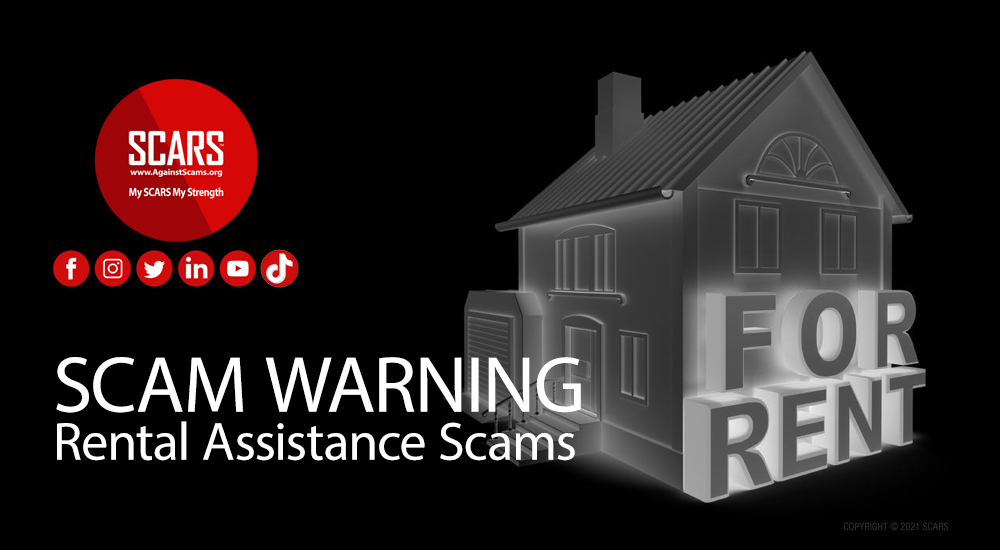




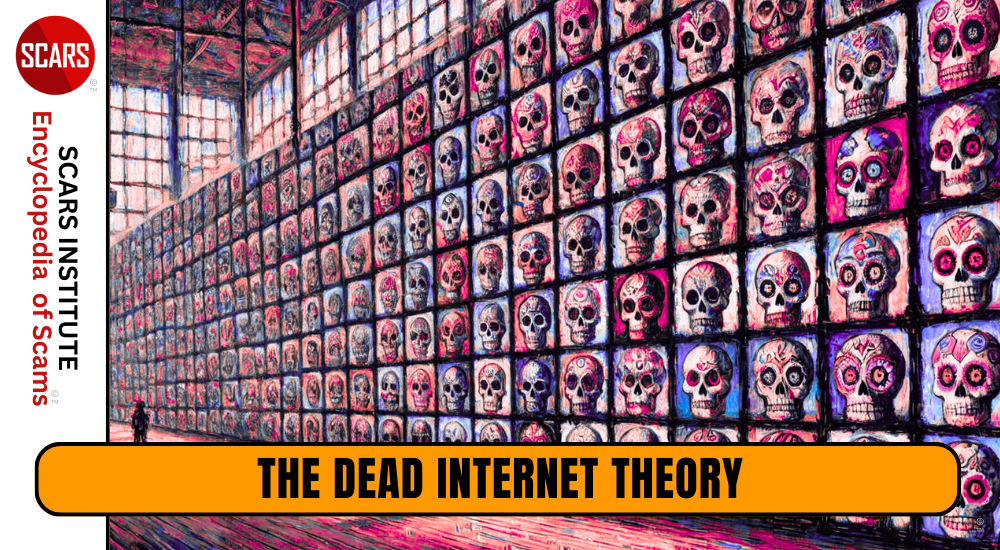
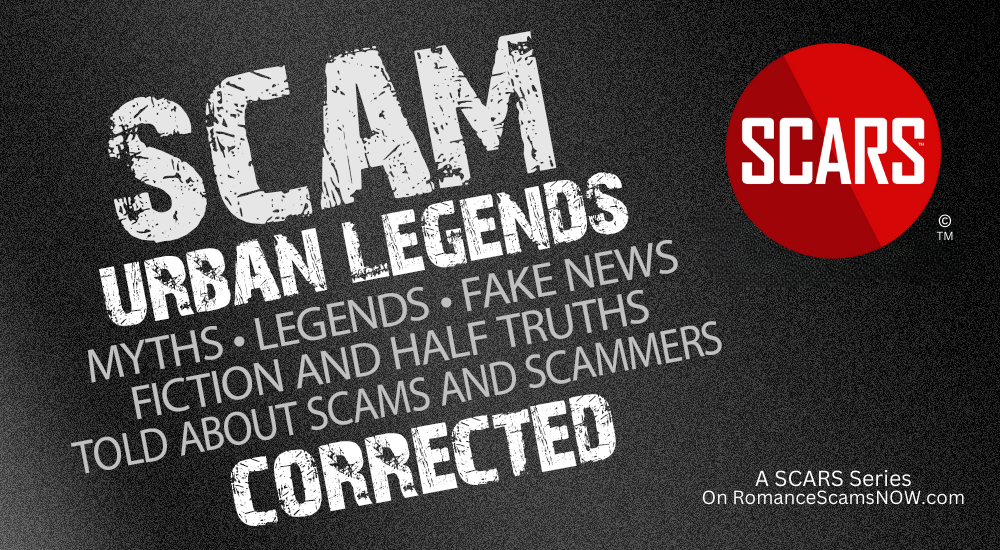
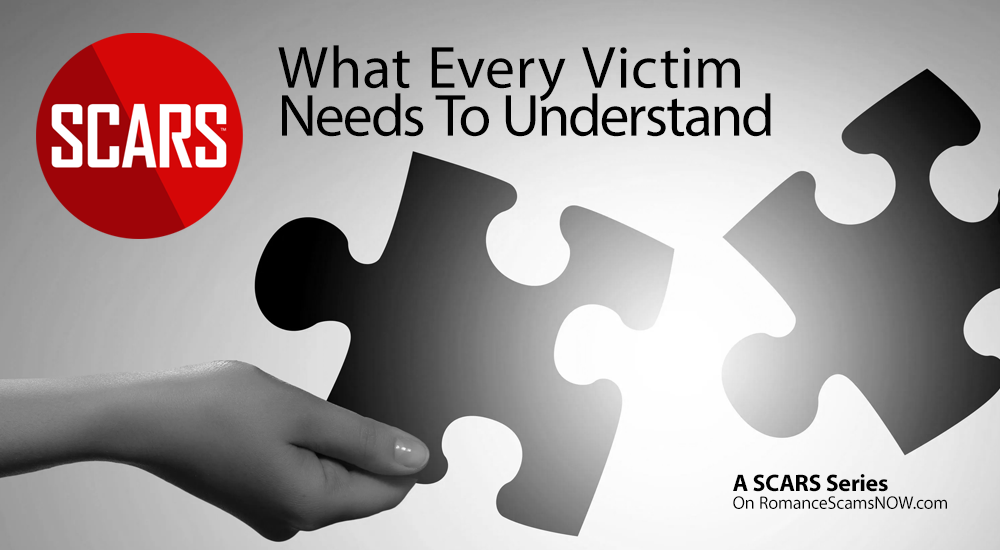
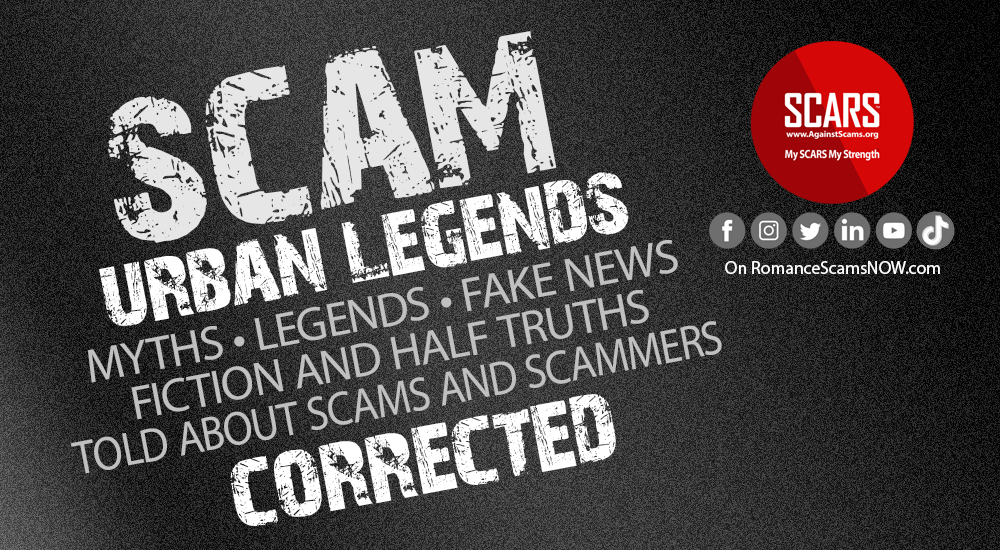




Thank you for your comment. You may receive an email to follow up. We never share your data with marketers.